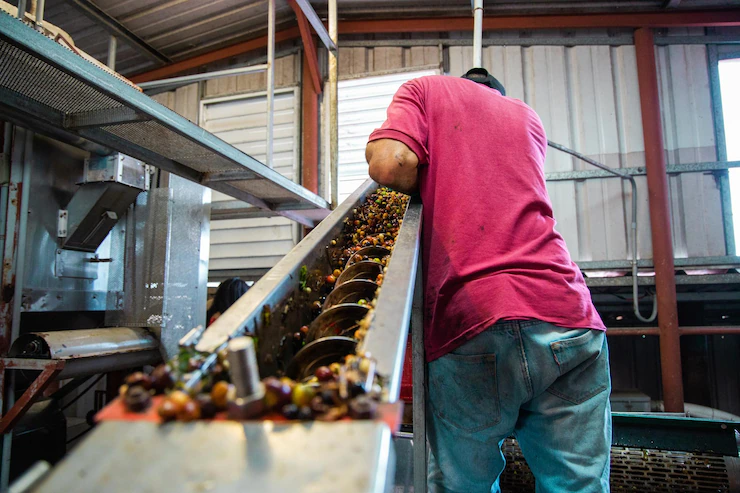Scaling up agroprocessing operations involves expanding and increasing the capacity of agricultural processing activities to meet growing demand and achieve higher levels of production. It involves various aspects, including infrastructure, technology, supply chain management, and market considerations. Here are some key factors to consider when scaling up agroprocessing operations:
- Market analysis: Before scaling up, conduct a thorough analysis of the target market to understand the demand and competition. Identify potential customers, market trends, and growth opportunities to ensure a sustainable and profitable operation.
- Infrastructure and facilities: Assess the existing infrastructure and facilities and determine if they can handle increased production volumes. This includes evaluating the processing facility, storage capacity, utilities, and transportation requirements. Expansion or upgrading may be necessary to accommodate larger volumes efficiently.
- Process optimization: Review and streamline existing processes to identify bottlenecks and areas for improvement. Automating certain tasks, investing in advanced machinery, or implementing new technologies can enhance efficiency, reduce costs, and increase productivity.
- Supply chain management: Evaluate the entire supply chain, from sourcing raw materials to delivering finished products. Strengthen relationships with suppliers and explore options for vertical integration to ensure a stable and consistent supply of high-quality inputs. Implement effective inventory management systems to avoid stockouts or excess inventory.
- Quality control and standardization: Maintain stringent quality control measures throughout the production process. Implement standardized operating procedures, quality assurance protocols, and certifications to meet regulatory requirements and build trust with consumers. Consistency in product quality is crucial for market penetration and brand reputation.
- Human resources and skills: Assess the skills and capacity of the workforce and identify any gaps. Provide training and development opportunities to enhance employees’ knowledge and capabilities. Consider hiring additional staff or engaging consultants with specialized expertise to support the scaling process.
- Financial planning: Determine the financial resources required for scaling up operations. This includes estimating the costs associated with infrastructure upgrades, machinery purchases, personnel, marketing, and working capital. Develop a comprehensive financial plan and explore financing options, such as loans, grants, or partnerships, to support the expansion.
- Regulatory compliance: Understand and comply with applicable regulations and certifications related to agroprocessing operations. This includes food safety standards, environmental regulations, labeling requirements, and any specific regulations related to your product or target market. Non-compliance can lead to legal issues and damage your reputation.
- Marketing and distribution: Develop a robust marketing strategy to create awareness, promote your products, and expand your customer base. Identify effective distribution channels, both traditional and digital, to reach your target market efficiently. Consider partnerships with retailers, wholesalers, or e-commerce platforms to improve product accessibility.
- Monitoring and evaluation: Continuously monitor and evaluate the performance of your scaled-up operations. Track key performance indicators, such as production volumes, quality metrics, customer satisfaction, and financial indicators. Regularly assess the effectiveness of your strategies and make adjustments as needed.
Remember that scaling up agroprocessing operations is a complex process that requires careful planning, resource allocation, and effective execution. Seek advice from industry experts, consult with relevant stakeholders, and adapt your approach based on market dynamics and feedback from customers.







